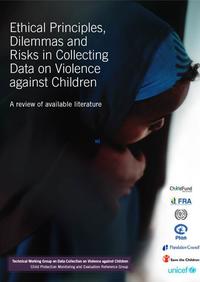Resources
Request support on coordination, information management, capacity development or other education in emergencies areas.
Demande de soutien en coordination, gestion de l’information, développement des capacités et autres domaines de l'éducation en situation d'urgence.
لطلب الدعم في مجال التنسيق ، إدارة المعلومات ، تنمية القدرات أو في اي مجال من مجالات التعليم في مناطق الطوارئ
Solicitar apoyo en coordinación, gestión de la información, desarrollo de capacidades u otra áreas en educación en emergencias.
Featured Resources
below you can find selected tools

COVID-19 Resources
View resources to support education in emergencies coordination during the COVID-19 pandemic.

Guidance on Education Cluster Co-Leadership Arrangements at the Country Level
Indicative Guidance for the establishment and management of co-leadership arrangements at the country level.

Inter-agency Network for Education in Emergencies
For technical education in emergencies resources, please visit the INEE website.
IOM Displacement Tracking Matrix (DTM) for the Education Cluster: A Guidance
Guidance on obtaining useful data from IOM’s Displacement Tracking Matrix (DTM) to inform emergency education planning and response
- Coordination: Needs Assessment, Information Management
- HPC: Implementation & Monitoring, Needs Assessment & Analysis, Strategic Planning
- Coordination: Coordination, Leadership
- HPC: Implementation & Monitoring, Needs Assessment & Analysis, Operational Peer Review and Evaluation, Resource Mobilisation, Strategic Planning, Coordination
Cluster Coordination Guidance for Country Offices
This document has been developed to assist UNICEF country offices to better fulfil CLA responsibilities in level 3 (L3) and other emergencies, with reference to relevant IASC protocols and guidance and relevant internal UNICEF reviews and evaluations.9 This document should be used in conjunction…
- Coordination: Coordination, Leadership
- HPC: Implementation & Monitoring, Needs Assessment & Analysis, Operational Peer Review and Evaluation, Resource Mobilisation, Strategic Planning
- Technical Areas: Accountability to Affected Populaiton
The Role of an Information Management Officer in Humanitarian Response
This document defines the broad concepts and role of Information Management in the context of a humanitarian response. It provides recommendation on ways forward for strengthening information management, and concludes with overarching guidance on the role of IM within the context of a typical…
- Coordination: Information Management
- HPC: Implementation & Monitoring, Needs Assessment & Analysis, Operational Peer Review and Evaluation, Strategic Planning
Participatory Approaches
Using participatory approaches in impact evaluationmeans involving stakeholders, particularly the participants in a programme or those affected by a given policy, in specific aspects of the evaluation process. The term covers a wide range of different types of participation, which differ in terms…
- Coordination: Coordination, Needs Assessment
- HPC: Needs Assessment & Analysis
- Technical Areas: Accountability to Affected Populaiton
Pakistan MIRA Provincial Assessment Working Group Terms of Reference
Pakistan is prone to repeated crisis which impact the well being of the population. In order to understand the impact of the crisis on the population, to understand their needs, identify their location, and develop an appropriate response to their needs, it is necessary to carry out an assessment.…
- Coordination: Cluster Management, Needs Assessment
- Emergency: Floods
- HPC: Needs Assessment & Analysis
Pakistan MIRA Code of Conduct Agreement
This code of conduct provides basic standards in relation to interviewing and documenting information as part of the Multi-cluster Initial Rapid Assessment (MIRA) of the areas where disaster occurs in Pakistan. The principles laid down in this code of conduct are to safeguard the best interests of…
- Coordination: Needs Assessment
- Emergency: Floods
- HPC: Needs Assessment & Analysis
Ethical Research Involving Children
This compendium, together with the associated website (see: http://childethics.com), has been specifically designed to provide a rich repository of evidence-based information and resources to guide and improve research involving children.
- Coordination: Needs Assessment
- HPC: Needs Assessment & Analysis
- Technical Areas: Accountability to Affected Populaiton
Ethical Principles, Dilemmas and Risks in Collecting Data on Violence against Children
Ethical guidelines are crucial when carrying out research on violence against children (VAC). This literature review is a contribution to the foundations for the development of such ethical guidelines. It aims to capture current thinking around ethical issues and provide empirical support to guide…
- Coordination: Needs Assessment
- HPC: Needs Assessment & Analysis
- Technical Areas: Protection
The Child Friendly Community Assessment Tools: A Facilitator’s Guide to the Local Assessment of Children’s Rights
This guidebook describes a detailed step-by-step process for broadly assessing and monitoring children’s living conditions in communities of cities and towns of different sizes as well as in rural communitie. The assessment process outlined in the guidebook enables the collection of community level…
- Coordination: Needs Assessment
- HPC: Needs Assessment & Analysis
- Technical Areas: Protection
Filter results
Coordination(selected )
Country(selected )
Emergency(selected )
Humanitarian Programme Cycle(selected )
Language(selected )
Publication Date(selected )
Publisher(selected )
Resource Type(selected )
Technical Areas(selected )
Can’t find what you’re looking for?
Contact your relevant language Help Desk










